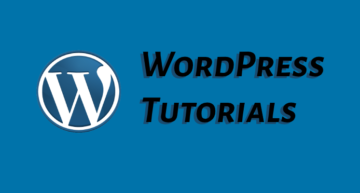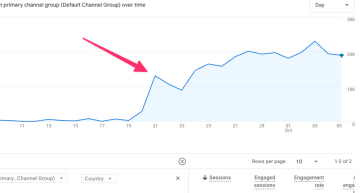Should I worry about my website’s domain authority dropping when launching a redesign?
Recently, I assisted a long-time client in migrating their redesigned website from manual php files to a dynamic WordPress website with WordPress hosting to boost website speed.
As I do with most redesign launches, I attempted to determine the existing architecture by reviewing the various website directories.
The goal was to move their website to WordPress to allow for easy management of the website.
Unlike their manual website, which was crafted by hand and highly prone to human error, moving to WordPress would allow for fewer hierarchy issues and challenges by harnessing the power of WordPress automation.
In addition, moving to WordPress would help to preserve the existing website page and domain authority they had built over the last 12 or more months.
The migration took nearly a week to complete.
I was able to assess, plan, implement, execute, and measure the migration. I migrated the old website page content into WordPress and implemented a sound, search-friendly architecture.
One of the most important aspects to consider when launching a redesigned website is not losing your existing domain authority yet increasing page and domain authority.
If you are changing the hierarchy in any way, it’s best to use 301 redirects to redirect old page URLs to new page URLs and to pass the existing page authority to the new page URLs.
If you do not use 301 redirects or 302 redirects, then you are restarting the clock on your SEO effort, eliminating all your previous SEO efforts.
As a rule of thumb, when launching a newly redesigned website or migrating an existing website to a new platform, it is best not to change too many page URLs.
However, when your website has a non-search-friendly architecture, it’s best to optimize the web architecture to be more search friendly.
For this customer and their website migration, 301 redirects were used so that visitors and search engines would not incur too many 404 errors (i.e., page not found).
In addition, we monitored Google Webmaster Tools crawl errors to troubleshoot and remedy broken links either by fixing page links or making 301 redirects where applicable.
It’s been nearly two weeks now since the migration has been completed.
One would think their work is done at this point, but the customer has noticed a slight shift downwards in their domain authority for the website.
I say slight shift because it’s a shift of 4 points.
Typically speaking, when migrating a website to a new platform or redesigning a website and launching it, one should expect their page and domain authority to somewhat shift over a period of at least 30-60 days before stabilizing.
In the meantime, you’ll want to give 301 directs an opportunity to be cached by search engines and index and re-index the new website architecture.
Migrating a website to a new IP address with an existing or new web hosting provider can temporarily decrease page and domain authority.
Besides increasing high-quality backlinks via writing new content and sharing content with the masses via social media networks, the best method for increasing both page and domain authority for any website is to give the newness of the changes time to propagate throughout current search engine rankings.
I’m not talking about hours, days, or weeks for these changes to occur and be noticeable, but I’m talking about months.
I’m talking 3 months at least to begin to gather a baseline for what to expect from the website moving forward.
If you see results sooner, then count yourself as blessed.
Nevertheless, page and domain authority are always moving targets and consist of many search ranking factors that could cause unexplained shifts upwards and downwards.
In closing, the point is not to get focused on being reactive to page and domain authority, maintaining and sticking to your preventative content marketing strategy for the long haul.
For more tips on how to increase domain authority for your website, review the infographic below provided by TechTage’s Rohit Palit.














